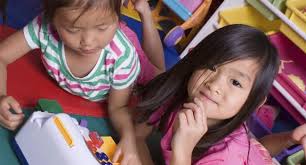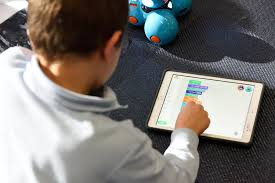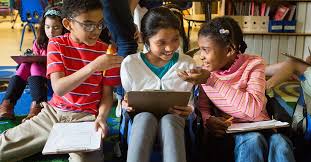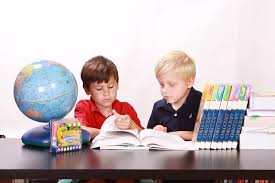What are the five educational games?
Check out these five active educational games for kids:
- Sylla-balls.
- Letter Sound/Sight Word Road.
- Letter Sound Hopscotch.
- Sight Word/Letter Stomp.
- Numbers Bowling.
What games can play classroom?
Top 10 Classroom Games
- Charades. This simple but classic game is a great way to encourage your student to get out of their seats and participate in the lesson.
- Hangman.
- Scatter-gories.
- Bingo.
- Puzzles.
- Draw swords.
- Hot potato.
- Pictionary.
What are some fun but educational games?
Elementary Online Educational Games
- ABCMouse. Offering a full curriculum for children ages 2-8, this site includes fun and interactive games, songs, and puzzles for reading, math, science, and art.
- Adventure Academy.
- Buzzmath.
- Camp Wonderopolis.
- Carmen Sandiego.
- Creativity Express!
- Duck Duck Moose Reading.
- FunBrain.
What is educational games for students? Educational games are those designed to teach people about a specific subject or a specific skill. They are made predominantly for kids and students of all ages, and can be used both inside the classroom and out. Educational games are a subset of serious gaming.
What are the five educational games? – Additional Questions
Why games are good for learning?
More Motivation
Playing games in the classroom increases overall motivation. By playing games, students become more motivated to learn, pay attention and participate in set tasks. Games help students to become a part of a team as well as take responsibility for their own learning.
Are there any good educational games?
Endless Alphabet is one of the best learning games apps for preschoolers. It allows children aged 2 and above to enjoy endless fun while learning. This app includes intuitive kid’s friendly graphics like animal animations and sound and music to catch the attention of young children and build their interest in it.
How do you make an educational game?
Guide to creating an educational game app
- Types of educational games.
- Think about setting and plot.
- Make it fun.
- Be creative but accurate.
- Follow school syllabi.
- Invest in quality art and sound.
- Let kids express themselves.
- Go for hyper-casual games.
What is a learning game?
That means that learning games are games that are designed to be used for or with educational goals. They are still games and posses their formal elements; but learning games go one step further and support the process of teaching and learning through game play.
What is online educational games?
A hybrid type of game genre that is played on the Internet through a Web browser, utilizes game formats, and incorporates some type of learning objectives, the goal of which is to promote student learning in a fun, engaging, and interactive way. Learn more in: An Investigation of Current Online Educational Games.
How do educational games reinforce development?
Using games in education mostly focuses on improving critical thinking skills while teaching a particular subject, by allowing students to think outside the box as they follow rules. There are other games that can be used which limit to improving knowledge in a specific subject and the most popular ones are math games.
Do games help kids learn?
Interaction and opportunities to make choices are among the virtues of the new generation of educational games, experts say. Games help us develop non-cognitive skills, which are as fundamental as cognitive skills in explaining how we learn and if we succeed, according to the panelists.
Do kids learn better through games?
According to research, using games in teaching can help increase student participation, foster social and emotional learning, and motivate students to take risks. One study of the popular multiple-choice quiz game Kahoot found that it improved students’ attitudes toward learning and boosted their academic scores.
Why educational games are good for children?
Educational games push the children to kick in their executive functioning — allotment of mental resources to come up with rapid decision making and efficient problem-solving. At the core of every educational game, lies a challenge.
What kinds of games can help children become more intelligent?
Kids can actually become better thinkers and strategizers and hone their social and verbal skills by simply playing.
- Unstructured play. Unstructured play gives kids the chance to learn and experiment.
- Bath-time fun. Bath time can teach math.
- Board games.
- Art.
- Nature.
- Journals.
How do games help children develop?
Research shows play can improve children’s abilities to plan, organize, get along with others, and regulate emotions. In addition, play helps with language, math and social skills, and even helps children cope with stress.
How do kids learn with fun?
“Young children learn how things fit together through play. It allows them to use their senses and encourages exploration and curiosity, and these skills are the foundation of intellectual development and cognitive processing.” Play also inspires children to pretend, create, and imagine.
What are the different types of play?
Types of play
- Physical play. Physical play can include dancing or ball games.
- Social play. By playing with others, children learn how to take turns, cooperate and share.
- Constructive play. Constructive play allows children to experiment with drawing, music and building things.
- Fantasy play.
- Games with rules.
What are the 7 types of play?
7 Types of Play & What They Accomplish
- Science breaks down the types of play. Dr.
- Attunement Play. Attunement play is the early building blocks for all forms of play.
- Body Play & Movement.
- Object Play.
- Social Play.
- Imaginative & Pretend Play.
- Storytelling-Narrative Play.
- Creative Play.
What are the 6 basic types of play?
Parten’s six stages of play
- Unoccupied play. Children are relatively still and their play appears scattered.
- Solitary play. This type of play occurs when children entertain themselves without any other social involvement.
- Onlooker play.
- Parallel play.
- Associative play.
- Cooperative play.
What is child guided play?
Guided play refers to learning experiences that combine. the child-directed nature of free play with a focus on. learning outcomes and adult mentorship. Children thrive. when they engage in free play, which involves active.
What are free play activities?
Examples of Free Play
- Drawing, coloring, painting, cutting, and gluing with art supplies.
- Playing make-believe and dress-up.
- Playing on playground equipment, climbing, swinging, running around.
- Reading and looking at books they enjoy, not as part of homework or study.




